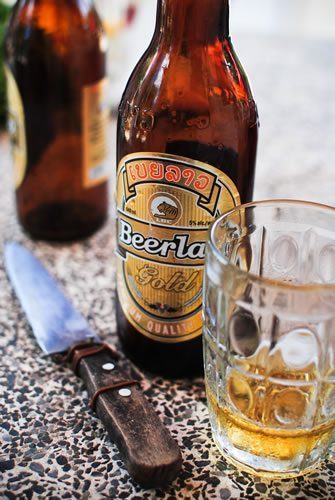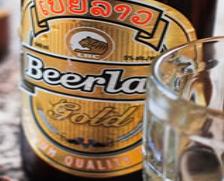[dropcap style=”font-size:100px; color:#992211;”]S[/dropcap]oldiers who kill in combat are less likely to abuse alcohol post-deployment.
As are their victims….
It’s no secret that combat experiences are highly stressful and can contribute to instances of post-traumatic stress disorder and depression among soldiers post-deployment. It also comes as no surprise that many soldiers afflicted with these conditions abuse alcohol in an attempt to self-medicate.
But new research coauthored by Cristel Russell, an associate professor of marketing with American University’s Kogod School of Business, and researchers with the Walter Reed Army Institute of Research finds that the most traumatic of all combat experiences, killing, is less likely to lead to alcohol abuse.
The study, titled “Changes in Alcohol Use after Traumatic Experiences: The Impact of Combat on Army National Guardsmen” and published in the June issue of the journal Drug and Alcohol Dependence, runs contrary to previous research.
“We were very surprised by the findings. Most previous resear ch supported the prediction that more traumatic experiences would lead to more negative health outcomes, such as alcohol abuse,” said Russell. “We found the opposite —that the most traumatic experiences of killing in combat actually led to a decrease in alcohol abuse post-deployment.”
ch supported the prediction that more traumatic experiences would lead to more negative health outcomes, such as alcohol abuse,” said Russell. “We found the opposite —that the most traumatic experiences of killing in combat actually led to a decrease in alcohol abuse post-deployment.”
Mortality Salience
Why would killing in combat, thought to be one of the most difficult stressors, cause soldiers to become less likely to abuse alcohol?
Russell and her colleagues believe that killing experiences may cause soldiers to have an increased sense of mortality and vulnerability that triggers a focus on self-preservation, which manifests itself in reduced high-risk alcohol consumption.
“We reason that a possible explanation may be that soldiers who experience killing during combat become more aware of their own vulnerability to death. Mortality salience is known to have effects on decisions that people make including, in our case, the decision to not take risks and abuse alcohol, presumably to live longer,” said Russell. “This is a post hoc explanation and our future research is going to try and explore this intriguing explanation further.”
Comparing Pre-and-Post Deployment Data
The study is also one of the first to compare pre-and post- deployment data.
Russell and her colleagues used this approach to better identify the associations between different types of combat experiences and changes in alcohol consumption.
For the study, Russell and her fellow researchers surveyed 1,397 members of an Army National Guard Infantry Brigade Combat Team three months before and three months after their deployment to Iraq in 2005. Members of the unit completed anonymous surveys regarding behavioral health and alcohol use and, in the post-survey, the combat experiences they had during deployment.
Aside from the revelation that soldiers who kill in combat are less likely to abuse alcohol post-deployment, survey results revealed that the prevalence of alcohol use increased from 70.8% pre-deployment to 80.5% post-deployment and that alcohol misuse more than doubled, increasing from 8.51% before deployment to 19.15% after deployment.
Source: American University
Photo: Bryce Eriksen

Some of the news that we find inspiring, diverting, wrong or so very right.





















